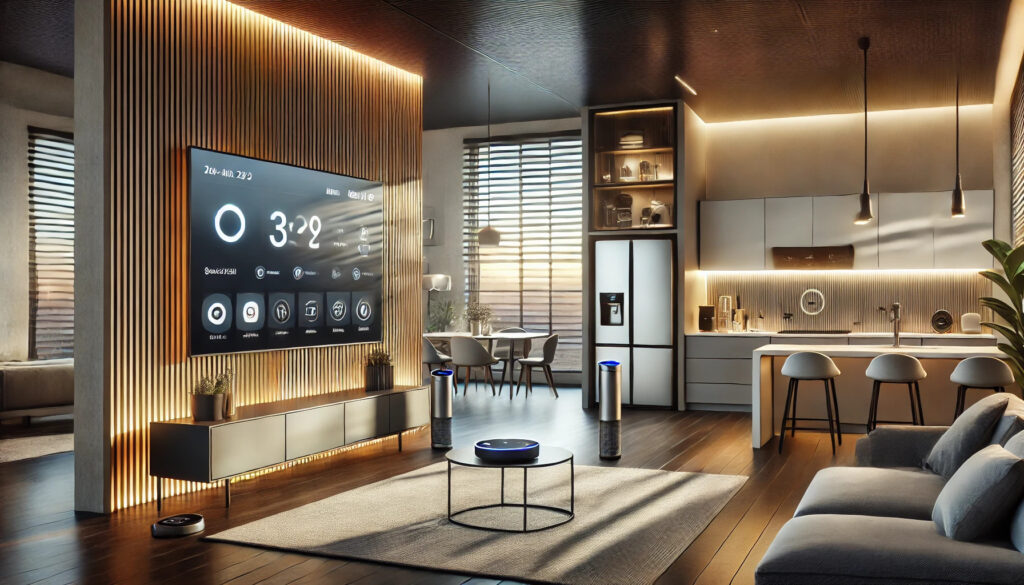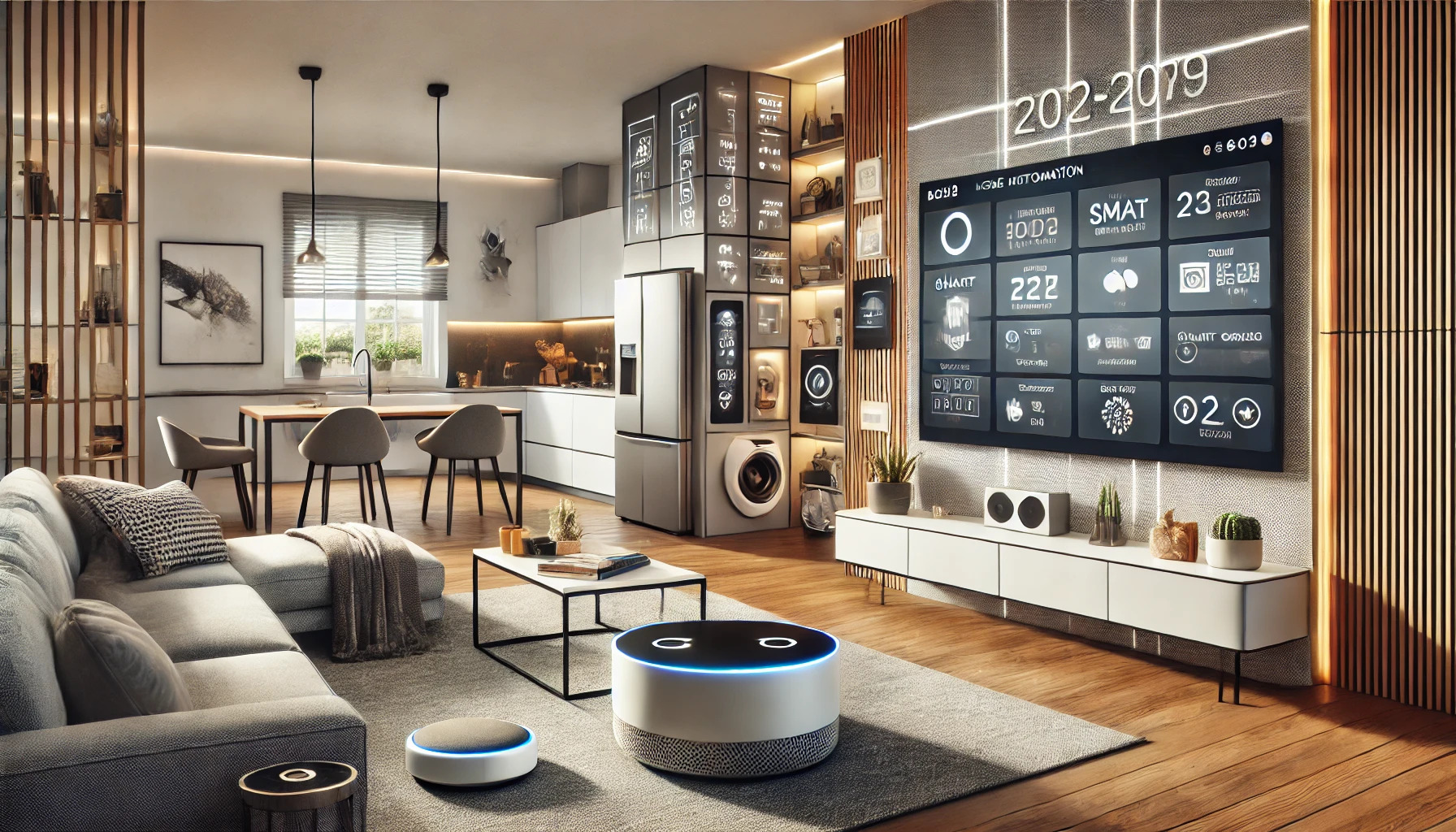
In recent years, smart technologies have revolutionized the way we live, work, and interact with our surroundings. As the world embraces digital transformation, our homes are becoming more than just living spaces; they are evolving into smart ecosystems that enhance comfort, convenience, and security. This article delves into the various smart technologies available for homes, their benefits, and how they are reshaping modern living.
Will there be a real estate market crash in Spain in the next 2 years? Analysis and forecast
ToggleWhat Are Smart Technologies?
Smart technologies refer to devices and systems that connect to the internet, enabling users to control and automate various functions remotely. These technologies are powered by the Internet of Things (IoT), which allows devices to communicate with each other and share data. From smart thermostats to intelligent security systems, these innovations aim to create a seamless and efficient living experience.
Key Benefits of Smart Home Technologies
1. Enhanced Convenience
One of the most significant advantages of smart technologies is the convenience they offer. Homeowners can control appliances, lighting, and security systems from their smartphones or tablets, regardless of their location. For example, a smart thermostat can learn your schedule and adjust temperatures automatically, ensuring comfort while saving energy.
2. Increased Energy Efficiency
Smart home devices contribute to energy conservation by optimizing energy usage. Smart thermostats, for instance, allow users to program heating and cooling schedules based on their daily routines. Additionally, smart lighting systems can automatically turn off lights when rooms are unoccupied, reducing unnecessary electricity consumption. These features not only lower utility bills but also minimize the environmental impact of energy usage.
3. Enhanced Security
Home security is a top priority for homeowners, and smart technologies offer advanced solutions to keep properties safe. Smart security systems include features like video surveillance, motion detection, and remote monitoring. Homeowners can receive real-time alerts and view live footage from their devices, providing peace of mind whether they are home or away. Additionally, smart locks allow users to grant access to trusted individuals remotely, enhancing convenience and security.
4. Improved Home Management
Smart home technologies provide tools for better home management, allowing users to monitor and control their household efficiently. For instance, smart kitchen appliances can send notifications when groceries are running low or when dinner is ready. Smart smoke detectors can alert homeowners to potential hazards, such as smoke or carbon monoxide, ensuring a safer living environment. With these technologies, managing daily tasks becomes simpler and more organized.
5. Enhanced Home Entertainment
Smart home technologies have transformed the way we enjoy entertainment. Smart speakers and streaming devices allow homeowners to access music, movies, and games effortlessly. Voice-activated assistants, such as Amazon Alexa or Google Assistant, enable users to control entertainment systems, adjust volume, and search for content using voice commands. This hands-free approach enhances the overall entertainment experience.
Popular Smart Technologies for Homes
1. Smart Thermostats
Devices like the Nest Learning Thermostat adapt to users’ habits and adjust heating and cooling settings accordingly. By optimizing temperature control, these devices enhance comfort while promoting energy efficiency.
2. Smart Lighting
Smart lighting systems allow users to control brightness and color remotely. Products like Philips Hue enable homeowners to customize lighting scenes, set schedules, and even control lights with voice commands.
3. Smart Security Cameras
Security cameras such as Ring and Arlo provide live video feeds and motion alerts, allowing homeowners to monitor their properties from anywhere. Some models even offer features like facial recognition and two-way audio.
4. Smart Locks
Smart locks offer keyless entry and remote access control. Homeowners can unlock their doors using smartphone apps, grant temporary access to guests, and receive notifications whenever the door is locked or unlocked.
5. Smart Home Hubs
Devices like Amazon Echo and Google Nest Hub serve as central control points for all smart home devices. They allow users to manage and automate multiple devices through voice commands or a single app interface.
Challenges of Adopting Smart Technologies
While the benefits of smart technologies are substantial, there are challenges to consider. Privacy and security concerns are paramount, as connected devices may be vulnerable to cyber threats. Ensuring that devices are updated with the latest security patches and using strong passwords can help mitigate these risks.
Additionally, compatibility among different devices can pose challenges. Homeowners should choose products that integrate well with existing systems to create a cohesive smart home environment.
Conclusion
Smart technologies are undeniably transforming the landscape of home living, offering enhanced convenience, energy efficiency, security, and entertainment options. As homeowners continue to embrace these innovations, the future promises even more advanced solutions to meet our evolving needs. Investing in smart technologies not only elevates the living experience but also paves the way for a more sustainable and connected future. Whether you’re looking to upgrade your home or simply exploring the possibilities, the world of smart home technology offers endless opportunities for a more intelligent living environment.






